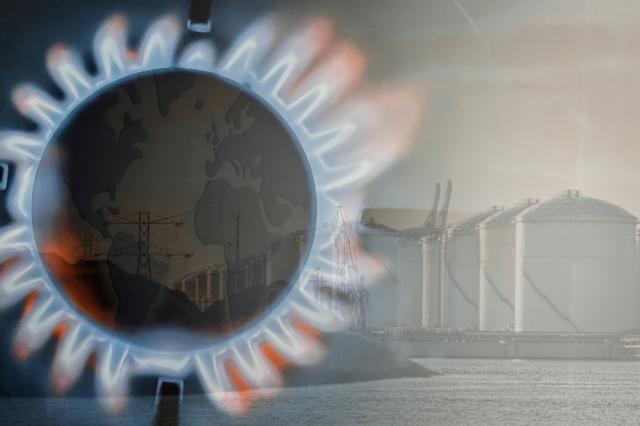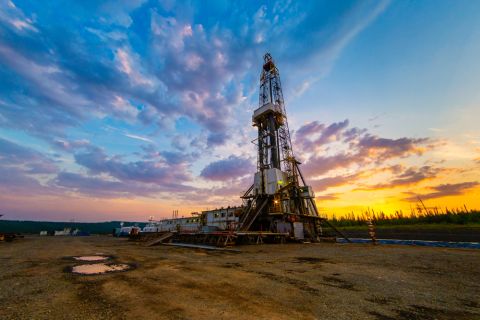
Venezuela has an embarrassment of natural gas riches but alone isn’t able to monetize it. Neighboring Trinidad and Tobago is short of gas to feed its LNG, methanol and ammonia export facilities. And striking a deal to appease both governments is no easy affair with the U.S. meddling in the middle. (Source: Shutterstock.com)
Venezuela has an embarrassment of natural gas riches but alone isn’t able to monetize it. Neighboring Trinidad and Tobago is short of gas to feed its LNG, methanol and ammonia export facilities. And striking a deal to appease both governments is no easy affair with the U.S. meddling in the middle.
Unlike The Three Musketeers, this is not an ‘all for one and one for all’ scenario. Not one of three countries is happy with the pace of developments. The gas haves and the gas have-nots each have distinct economic and political objectives. As long as that’s the case it’s going to be a zero-sum game for all involved.
Analysts argue that Trinidad’s government in Port of Spain and its closeness with Washington is a turnoff to some in Caracas. And rightfully so considering the U.S.’ involvement in Venezuela over the last 23 years to persuade regime change. For his part, Venezuela’s President Nicolás Maduro Moros has yet to make such a public comment.
OPEC founding member Venezuela, home to the world’s largest proven oil reserves, also has sizable proven gas reserves, estimated at 221 Tcf, according to BP’s Statistical Review of Energy. That ranks the country as the seventh largest holder of gas worldwide.
However, an overdependence on oil rents led successive Venezuelan governments to overlook the country’s gas export potential as well as that of other commodities like coffee. Venezuela has yet to develop any local industries for exports—seemingly beyond baseball players and beauty queens—instead relying on imports of almost everything.
Venezuela’s quest to monetize its gas
Russia’s invasion of Ukraine early last year forced leaders in Europe and worldwide to focus on energy security, a challenge Venezuela has been focused on since the early 2000s under the umbrella of “energy sovereignty.”
Venezuela’s energy sovereignty mandates that the government controls the country’s reserves and resources but the monetization schemes could vary with assistance from international players. These schemes have been complicated by U.S. sanctions imposed in 2019 aimed this time at toppling Maduro, who stepped in to lead Venezuela after Hugo Chávez’ cancer-related death in 2013.
Venezuela’s oil bonanzas are arguably a thing of the past but the country now has another window of opportunity to monetize its massive non-associated gas reserves located offshore—relatively close to the mainland and spanning three legacy projects.
Rafael Urdaneta, located in the center-west region of Venezuela, is also home to the Cardon IV venture that partners Italy’s Eni SpA and Spain’s Repsol, then Plataforma Deltana and Mariscal Sucre both in the east.
Onshore, and probably more important due to its current environmental impact and near-term economic potential, Venezuela also has associated gas that could be monetized. But, owing to a lack of infrastructure, the country is instead burning off or flaring the gas, which according to Gas Energy Latin America, is just over 2 Bcf/d.
RELATED: Venezuela Flares More Gas than Freeport LNG Exports
Venezuela’s long-running plans to move forward a massive LNG export facility in Güiria in eastern Sucre state have yet to materialize. But, the use of Güiria as a gas processing hub is still a hot topic with Maduro’s government.
Trinidad’s dwindling gas reserves fuel anxiety
The twin-island country Trinidad and Tobago is under pressure to find gas reserves and production at home or production nearby, and quickly. Based on current production, Trinidad will run out of gas in less than a decade, according to BP. Trinidad produced around 2.61 Bcf/d in May 2023, down compared to a peak of 4.52 Bcf/d in 2010, according to data published by the country’s Ministry of Energy and Energy Industries (MEEI).
RELATED: Trinidad’s Energy Minister Young Talks Gas Production, Venezuela and Atlantic LNG [WATCH]
RELATED: Trinidad’s Young Executes Confidentiality Agreement with PDVSA
Lower gas production has impacted Trinidad’s four-train 14.8 million tonnes per annum (mtpa) Atlantic LNG liquefaction plant, today operating just three of its four trains. Trinidad’s ammonia and methanol plants have also been impacted by a lack of gas.
Venezuela’s Dragon gas field, part of the Mariscal Sucre project, has generated a buzz in recent years within the Venezuela and Trinidad governments due to its potential to be quickly monetized in Trinidad.
“The easiest mechanism for the government of Venezuela, and less traumatic in terms of the sanctions, is for the gas to go via pipeline directly to Trinidad,” Datanalisis president Luis Vicente Leon told Hart Energy. “Of course, you lose control but from an operating point of view. The maneuverable capacity to bring [the gas from the Venezuelan mainland] and then resend it to Trinidad is much more complex.”
MEEI head Stuart Young continues to pound the streets of Venezuela and the U.S. looking to rectify his country’s gas problem and head off more serious ones that could come in the near future. Young’s movements related to the latter are undoubtedly causing some uneasiness with Venezuelan authorities, analysts say.
U.S. in the middle
A recent shale boom has allowed the U.S. to boost its ability to export energy, especially LNG to global markets as well as piped-gas to Mexico. On paper, those are reasons enough for Washington to not have a direct economic interest in Venezuela’s gas.
However, the U.S. continues to push for “free and fair” elections in 2024 as part of its longing for the return of a more U.S. friendly government in Miraflores, Venezuela’s presidential palace. But, to Washington’s disappointment, many analysts don’t expect a change of regime next year.
U.S. oil sanctions have arguably done less harm to Venezuela’s leaders and more harm to its citizens as over 7 million have deserted the country in recent years, overburdening numerous countries from Colombia to Mexico unable to handle the humanitarian crisis they’ve inherited. When it comes to Venezuela’s gas, there’s a strong argument there as well about the impact of U.S. sanctions.
Recent admissions by former U.S. president Donald Trump in June about his desires while in office to take over Venezuela’s oil reserves have only fueled more distrust of Washington.
RELATED: Chart Talk: Chevron Venezuela's Rising Output, Revenues
“Venezuelan political negotiations will not advance, but what will end up happening is we’ll see a divorce from the economic [side of the economy]. … What the U.S. is likely to do is make calls which will not require the signing of [gas] agreements … because without a signed agreement, the maneuverable capacity is higher. This is going to be in-line with the dollarization of Venezuela, a factual dollarization, the result of a factual easing and not a formal easing of activities,” Leon said.
After weathering sanctions and then the pandemic, Maduro, a former bus driver, remains in the driver seat at Miraflores and the road ahead of him doesn’t appear likely to shake him out of his seat, analysts say.
Recommended Reading
WTI Delivered to East Houston Hits Highest Premium in Nearly Three Years
2024-05-01 - Oil takeaway capacity from the Permian Basin will tighten next month due to scheduled pipeline maintenance.
CPS Closes $785MM Deal for Talen Energy’s Texas NatGas Plants
2024-05-01 - CPS Energy has acquired all assets associated with the 897-MW Barney Davis and 635-MW Nueces Bay natural gas plants in Corpus Christi, Texas, and the 178-MW natural gas plant in Laredo, Texas.
Wirth: Chevron Won’t Put ‘New Capital into Venezuela’
2024-05-01 - California-based Chevron Corp. doesn’t plan on allocating more capex into its operations in Venezuela even though it still has U.S. approval to operate there, despite Washington sanctions.
Tinker Associates CEO on Why US Won’t Lead on Oil, Gas
2024-02-13 - The U.S. will not lead crude oil and natural gas production as the shale curve flattens, Tinker Energy Associates CEO Scott Tinker told Hart Energy on the sidelines of NAPE in Houston.
What's Affecting Oil Prices This Week? (Feb. 12, 2024)
2024-02-12 - With the increase last week, the price of Brent crude has reached its 200-day moving average.





